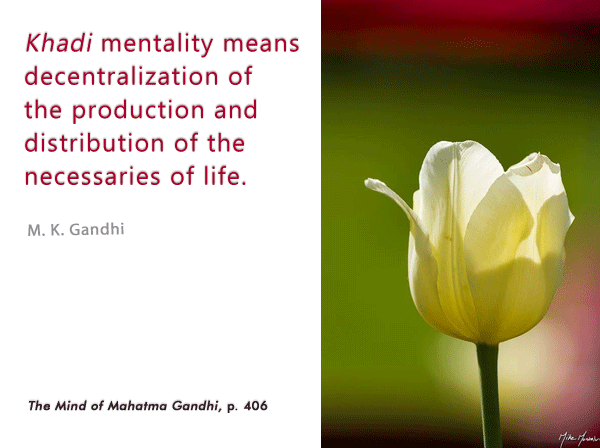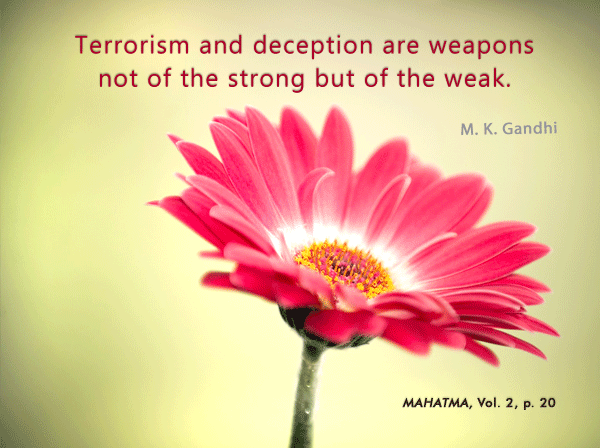Thursday, May 12, 2016
Wednesday, May 11, 2016
Tuesday, May 10, 2016
Monday, May 9, 2016
Gandhi Journal Article-II (May2016) - Gandhian relevance to environmental sustainability
Gandhi Journal Article-II (May2016)
Gandhian relevance to environmental sustainability
By Dr. Vaidehi Daptardar
Environmental sustainability is the most burning issue with which every one of us is related very closely. Environmental Sustainability means to sustain ability, both the ability of the environment to regenerate and the ability of people to retain control over their living conditions (Kuhn 1998). In the terms of the 1987 Brundtland Report, sustainability is "Meeting the needs of the present generation without compromising the ability of future generations to meet their needs." Sustainable development may be described as a process for improving the range of opportunities that will enable individual human beings and communities to achieve their aspirations and full potential over a sustained period of time, while maintaining the resilience of economic, social and environmental systems (Munasinghe 1994). The concept has evolved to encompass three major points of view: economic, social and environmental, as represented by the triangle.
Each viewpoint corresponds to a domain (and a system) that has its own distinct driving forces and objectives. The economy is geared mainly towards improving human welfare, primarily through increases in the consumption of goods and services. The environmental domain focuses on protection of the integrity and resilience of ecological systems. The social domain emphasizes the enrichment of human relationships and achievement of individual and group aspirations. In other words, sustainable development requires increase both in adaptive capacity and in opportunities for improvement of economic, social and ecological systems (Gunderson and Holling 2001). Improving adaptive capacity will increase resilience and sustainability.
Sunday, May 8, 2016
Subscribe to:
Comments (Atom)




